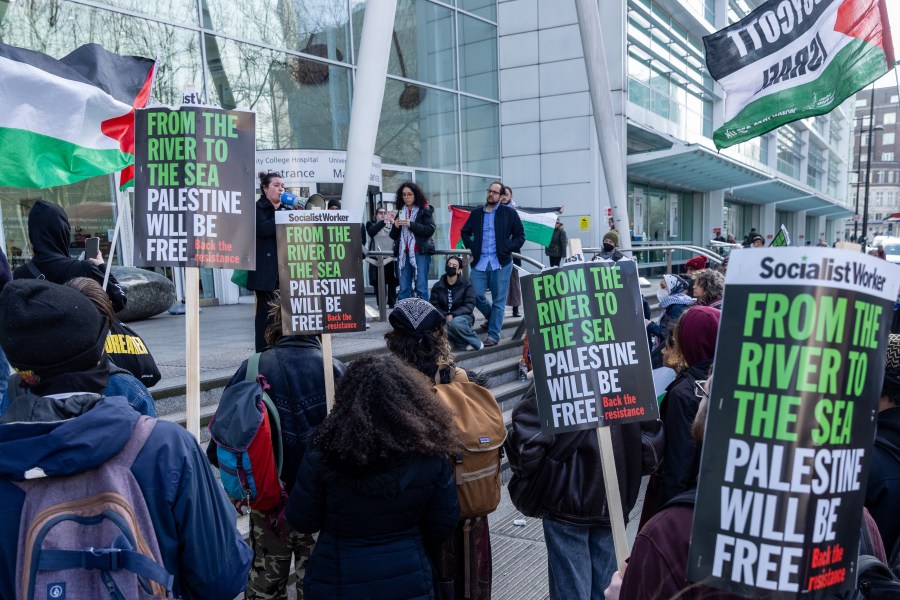“From the river to the sea, Palestine will be free” is a slogan echoing through pro-Palestinian rallies across the United States and elsewhere, including those observed on the campuses of the University of Southern California and the University of California, Los Angeles this week.
Like all aspects of the Middle East conflict, the phrase is polarizing, and interpretations vary.
For the Anti-Defamation League, however, it’s clear.
“What it connotes to the Jewish people, a vast majority of whom have an intrinsic tie between their Judaism and the State of Israel, ‘From the river to the sea’ means eradicating that piece of land and all Jewish life,” says Jeffrey Abrams, the ADL’s Los Angeles regional director. “That’s what we saw on October 7 by Hamas, a terrorist organization, which committed the greatest atrocity against the Jewish people since the Holocaust.”

For context, the State of Israel and the Palestinian territories lie between the Jordan River and the Mediterranean Sea. The river, spanning over 200 miles, forms a natural border between the Jewish state, the Palestinian-controlled West Bank, and neighboring Jordan and Syria.
The ADL and other Jewish advocacy groups insist that “From the river to the sea” is blatantly antisemitic and crosses the line between freedom of speech and hate speech. They argue that those who chant it are advocating for genocide rather than simply supporting the plight of Palestinians.
Not true, says Palestinian-American writer and political analyst Yousef Munayyer.
“When we talk about ‘From the river to the sea,’ we’re talking about a place that we call home,” Munayyer told the CBC. He argues that the phrase expresses a desire for Palestinian independence and freedom, not the eradication of Jews.
“From the river to the sea today, there is one state, an Israeli state, that rules over millions of people: Palestinians who don’t have equal rights, who are not free. That’s what has to change. It doesn’t mean that there should be any violence against Israelis,” he says.
What many Jews hear, of course, is something different. Their belief that the phrase is antisemitic is shared by many political leaders who can point to its adoption by Hamas over a decade ago.
“Palestine is ours from the river to the sea and from the south to the north,” Khaled Mashaal, the militant group’s former leader, said in a 2012 speech in Gaza celebrating the 25th anniversary of the founding of Hamas. “There will be no concession on any inch of the land.”

When Rep. Rashida Tlabi (D-Michigan) used ‘From the river to the sea’ in speeches and on social media last year, she was censured by the U.S. House of Representatives.
In October 2023, Vienna police banned a pro-Palestinian demonstration, citing the phrase “From the river to the sea” mentioned in invitations and characterizing it as a call to violence.
In the United States, law enforcement and universities have largely avoided addressing whether the slogan constitutes hate speech that incites violence, focusing instead on the actions of the protesters rather than their words.
At USC, demonstrators were removed for pitching tents and erecting banners, which violates the private school’s policy. Activists at UCLA, however, were unchecked as they took over a large plaza on the public university’s campus with tents and barricades and displayed signs with the slogan.
While the ADL condemns the use of “From the river to the sea,” Abrams says his organization is more concerned with these disruptions on college campuses and the threats, both real and perceived, targeting Jewish students.
“It’s not an issue of free speech. With free speech, there are obligations to each other,” he says. “Just because one group has a right doesn’t mean they have the right to trample on the rights of others, which, unfortunately, is what’s been happening across our country when it comes to the rights of Jewish students on these campuses.”
The Associated Press contributed to this report.






















